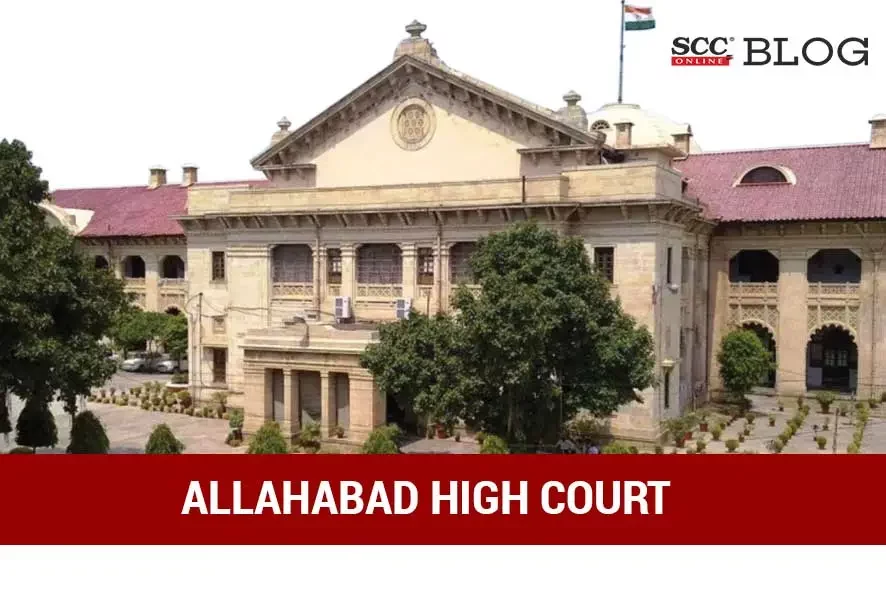Allahabad High Court: In an application seeking review of the judgment and order passed by a co-ordinate Bench of this Court, dismissing an appeal, the division bench of Devendra Kumar Upadhyaya and Subhash Vidyarthi* JJ. while setting aside the review application, said that as far as the judicial powers and duties of the judges are concerned, there is no difference between the Judges appointed under Article 217 of the Constitution of India and the Judges appointed under Article 224. In the event a Judge appointed under Article 224 does not decide any case because he has been appointed under that Article, he would be failing in the performance of his Constitutional duties, and he will be disrespecting his oath.
The ground pressed by the review applicant is that the judgment was not pronounced as per the procedure prescribed by Chapter VII, Rule 1 of the Allahabad High Court Rules, 1952.
The Court noted that the purpose of the aforesaid Rule is that the judgment delivered by the Court should be known to the parties.
Further, it said that aforesaid Rule provides that after a case has been heard, the judgment may be pronounced either at once, or on some future date, of which notice shall be given to the Advocates of the parties. It further provides that notification in the cause-list shall be deemed to be ‘sufficient notice’. This Rule is a Rule of Procedure, and it does not confer any substantive right on any party. The Rule does not provide any adverse consequence of the entire judgment not being pronounced in open Court immediately. Thus, the Court viewed that the aforesaid procedural Rule is merely directory in nature.
The Bench further said that judgments are normally pronounced in open court. In some cases, where the dictation of judgment is expected to consume a very long time, the judgments are reserved. It is also a common practice that at times the Courts pronounce the jist of the judgment and the outcome of the case in the open Court, and the detailed judgments are dictated in the Chamber so as to utilise the time of working on the dias, which would have been consumed in dictation of the complete judgment, in the interest of judicial work by hearing and deciding some other cases. In the present case also, jist of the judgment and the outcome of the Appeal was pronounced in open court and the detailed judgment was dictated subsequently in the Chamber.
Therefore, the Court rejected the submissions of the review applicant, that as the complete judgment was not pronounced in open Court, it becomes unsustainable in law.
The next ground taken by the review applicant was that the special appeal was heard by a Division Bench, consisting of two Judges, one of whom was appointed under Article 217 of the Constitution of India, whereas the other Judge was appointed under Article 224 of the Constitution of India and the formation of the Bench was against the spirit of the Constitution of India.
The Court said that the Constitution of the Bench was known to the review applicant at the time of making his submissions and still he preferred to advance his submissions in support of the special appeal, and he took a chance of getting a judgment which would be favourable to the opposite party. This ground has been taken by him for the first time in review application, after the special appeal was dismissed. The Bench reiterated a new ground cannot be raised for the first time in review application.
After perusing Article 217 of the Constitution, the Court said that it makes a mention of the Judges appointed under Article 224 of the Constitution and it differentiates them only in terms of their tenure, by providing that an additional or acting Judge shall hold office as per the provision contained in Article 224 and the other Judges shall hold office until they attain the age of 62 years.
The Court said that there is no separate provision for making and subscribing oath by the Judges appointed under Article 224 of the Constitution and no separate form of oath is prescribed for them. The Judges appointed under Article 224 of the Constitution are also under oath to perform the duties of their office without fear of favour, affection or ill-will like a Judge appointed under Article 217.
The Bench further said that the Chief Justice is the master of the roster, and he alone has the authority to assign different cases or category of cases to different Judges. All the Judges are duty bound to perform the judicial work allotted to them and to exercise their jurisdiction, irrespective of the Constitutional provision under which they have been appointed.
The Court while ascertaining that whether the impugned judgment suffers from any error apparent on the face of the record, noted that the petitioner’s services were regularized vide order dated 27-08-2012 and he had worked on a regular basis for a period of merely 3 months and 5 days and he did not complete the qualifying service of 10 years necessary for making him entitled to receive pension. Therefore, the Court viewed that the impugned judgment and order dismissing the special appeal does not suffer from any error, much less an error which is apparent on the face of the record.
[Mata Prasad Tiwari v. State of UP, 2023 SCC OnLine All 377, Order dated 10-07-2023]
*Order Authored by: Justice Subhash Vidyarthi
Advocates who appeared in this case :
Counsel for Applicant: Advocate Rama Kant Dixit, Advocate Asok Pande.








